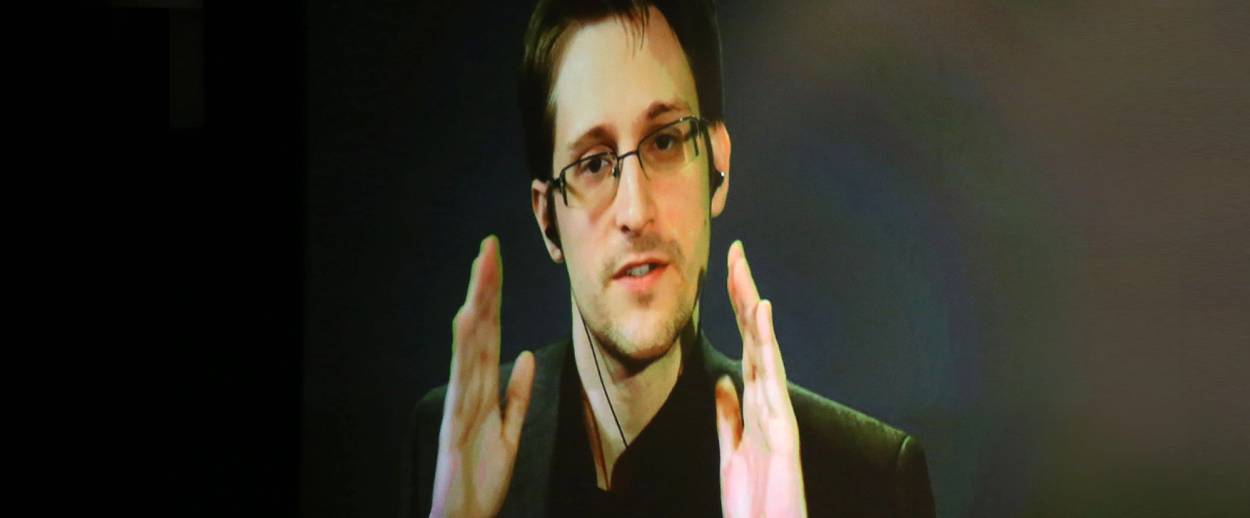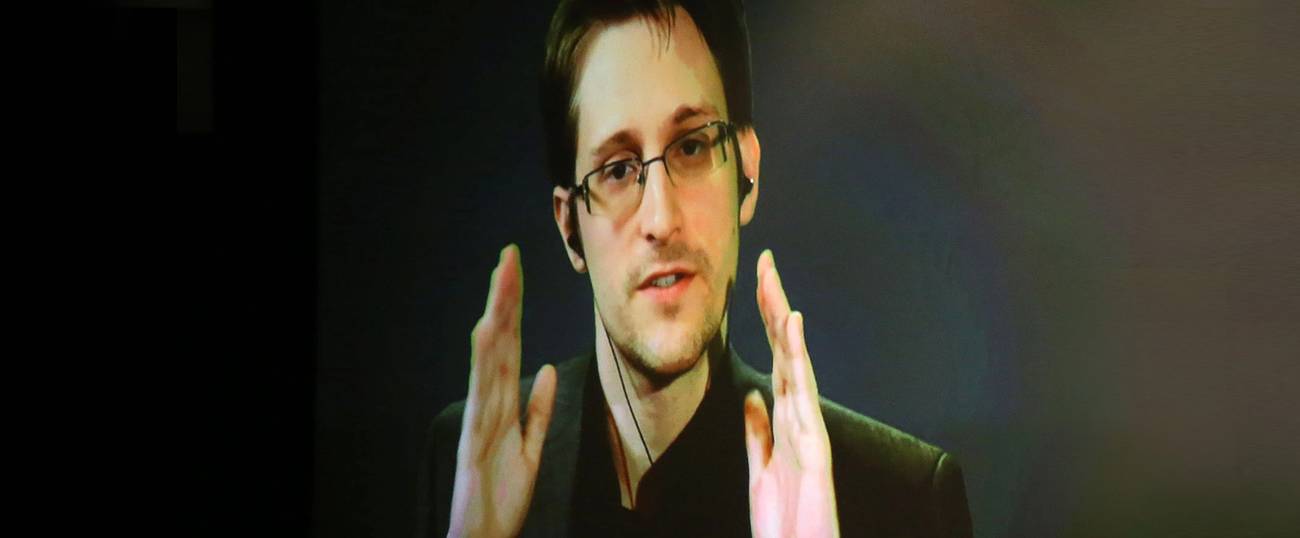Edward Snowden: Very Little Brother
Fear the digitally-skillful bullies who happen to disagree with you. They represent the tyranny of the weak.




The scary thing about Edward Snowden and his revelations was always Edward Snowden, and not his revelations. The revelations told us that, in the United States, the National Security Agency had set up an enormous big-data system to be able to inquire into anyone’s telephone records and to look at internet inquiries. And the National Security Agency spied on other countries, including our own closest allies, not to mention our non-allies. I know that many people have regarded all of this as terrifying, and they regard Snowden as a hero for revealing it. In one respect, I share their fear, though not their admiration.
What will happen, after all, if the Republican Party wins the White House—and also wins the Senate, as seems likely, alas? President Trump will appoint the national security director, who could easily be someone in the mold of Chris Christie or Rudolph Giuliani. The Senate will vote to confirm. And the NSA will go about persecuting the Republican Party’s opponents in the authoritarian and capricious manner that might be expected of Christie or Giuliani.
Still, it ought to be noted that, as of today, nothing like that has been going on. To listen to the acclaim for Snowden and his heroism, you would imagine that, until the moment he revealed the NSA’s powers to the world, we were living under tyrannical conditions. But we were not. The NSA, pre-Snowden, possessed the ability, in principle, to look into your phone calls; even so, you were not persecuted. Big Brother evinced no interest in being Big Brother. The NSA looked for terrorists and for Chinese and Russian conspiracies and such, and tried not at all to limit or shape the political debate in any of the democratic countries. Nor did anyone in the government try to limit or shape your own political opinions. The despotism of the NSA did not exist.
Edward Snowden, though—here is the despot, in my eyes. Certainly, he is the sign of despotism to come, regardless of the Republicans and the Democrats and whatever they may do. The despotism of Big Brother may come about, or not. But we have already learned that we are going to be subject to the despotism of self-righteous megalomaniacs without any official status at all—the despotism of people who feel they have a duty to reveal other people’s secrets. This will be the despotism of Very Little Brother. Snowden, for instance.
Here is a man who, like everyone else, has opinions. Only, in his case, his technical skills allow him to act on his opinions. The United States elected and re-elected Barack Obama to determine the policies of the NSA, subject to all kinds of legal limitations and congressional meddlings. But Snowden happened to disapprove of the president’s determinations. Therefore he appointed himself to override the president and reveal the NSA’s secrets to the world. He and ex-Pvt. Chelsea Manning are two of a kind, in this respect. A few years ago, while stationed with the Army in Iraq, Pvt. Manning decided she disapproved of various additional United States policies, got hold of hundreds of thousands of military and State Department documents, and passed them along to WikiLeaks and Julian Assange, whose views Pvt. Manning evidently preferred. And, as a result, we are living through an era in which the foreign and military policies of the United States have been shaped in meaningful degree by Edward Snowden, by Pvt. Manning, by Julian Assange, and by (in addition) Snowden’s protector, the president of the Russian Federation. Here is something to fear: the collapse of democratic structures and decision-making in favor of the capricious actions of random individuals and the Czar of All Russia.
My own personal fear is smaller but more acute. My fear is that one of these days somebody who disapproves of my own opinions or dislikes my personality will do to me what Snowden has done to the NSA. My entire email correspondence will be rendered available to the world for inspection and mockery; not that many people would be interested. Still, some people might be interested, and my unhappiness will be intense. My fear is that humiliation and exposure of this sort will become, for everybody, an everyday experience. Digitally-skillful bullies will punish their victims at whim, and, like Snowden and Manning, they will do so in a fury of self-righteousness, and sometimes to the applause of crowds who deem themselves to be the friends of liberty.
It goes without saying that digital vengeance and blackmail will become a criminal big business, if they haven’t already. A protection-racket hacker will knock on your door, offering to protect your own secrets for a generous monthly fee. Or you will hire the same hacker to ferret out the love letters of the evil neighbor whose barking dog keeps you up at night, or your rival at the office, or the professor who gave you a C, and this will be normal.
And yet people think Snowden is a champion of privacy and freedom! A hero! No, he is Very Little Brother, and he, or someone like him, will soon enough be watching you.
***
You can help support Tablet’s unique brand of Jewish journalism. Click here to donate today.
Paul Berman is Tablet’s critic-at-large. He is the author of A Tale of Two Utopias, Terror and Liberalism, Power and the Idealists, and The Flight of the Intellectuals.